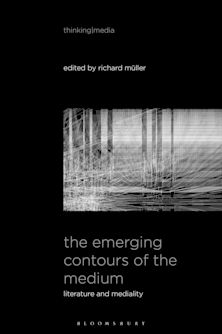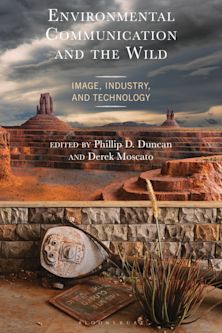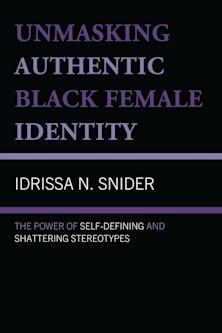- Home
- ACADEMIC
- Film & Media
- Film and Media Studies - Other
- Deliberation, Democracy, and the Media
Deliberation, Democracy, and the Media
Simone Chambers (Anthology Editor) , Anne Costain (Anthology Editor) , James Bohman (Contributor) , Andrew Calabrese (Contributor) , Heather Fraizer (Contributor) , Roderick P. Hart (Contributor) , Gerard A. Hauser (Contributor) , Shanto Iyengar (Contributor) , Alison M. Jaggar (Contributor) , Mark Kingwell (Contributor) , Doug McAdam (Contributor) , James W. Nickel (Contributor) , Phil Weiser (Contributor)
Deliberation, Democracy, and the Media
Simone Chambers (Anthology Editor) , Anne Costain (Anthology Editor) , James Bohman (Contributor) , Andrew Calabrese (Contributor) , Heather Fraizer (Contributor) , Roderick P. Hart (Contributor) , Gerard A. Hauser (Contributor) , Shanto Iyengar (Contributor) , Alison M. Jaggar (Contributor) , Mark Kingwell (Contributor) , Doug McAdam (Contributor) , James W. Nickel (Contributor) , Phil Weiser (Contributor)
You must sign in to add this item to your wishlist. Please sign in or create an account
Description
Is deliberative democracy the ideal goal of free speech? How do social movement organizations, activists, and political candidates use the media to frame their discourse? What responsibilities does the media have in maintaining or promoting democracy? In this broadly interdisciplinary volume, top scholars in communication, political science, sociology, law, and philosophy offer new perspectives on these and other intersections within democratic discourse and media. Interweaving elements of social, political, and communication theory, they take on First Amendment and legal issues, privacy rights, media effects and agenda setting, publicity, multiculturalism, gender issues, universalism and global culture, and the rhetoric of the body, among other topics. This unique book provides a foundation for evaluating the current state of democratic discourse and will be of interest to students and scholars of deliberative democracy across the social sciences.
Table of Contents
Part 2 Part I: Democratic Deliberation
Chapter 3 Free Speech, Democratic Deliberation, and Valuing Types of Speech
Chapter 4 Promoting Informed Deliberation and a First Amendment Doctrine for a Digital Age: Toward a New Regulatory Regime for Broadcast Regulation
Part 5 Part II: Deliberative Equality and the Media
Chapter 6 Multicultural Democracy
Chapter 7 The Division of Labor in Democratic Discourse: Media, Experts, and Deliberative Democracy
Chapter 8 The Means of Communication and the Discourse on Sovereignty
Part 9 Part III: News Reporting and Coverage
Chapter 10 The Unheralded Functions of Campaign News
Chapter 11 Media Effects: Paradigms for the Analysis of Local Television News
Part 12 Part IV: Media Representation of Social Movements
Chapter 13 Movement Strategy and Dramaturgic Framing in Democratic States: The Case of the American Civil Rights Movement
Chapter 14 Body Rhetoric: Conflicted Reporting of Bodies in Pain
Chapter 15 Media Portrayal of "Second Wave" Feminist Groups
Part 16 Part V: Culture and Rhetoric
Chapter 17 The Banality of Evil, The Evil of Banality
Chapter 18 A Culture of Publicity
Product details
| Published | 26 Sep 2000 |
|---|---|
| Format | Ebook (PDF) |
| Edition | 1st |
| Extent | 232 |
| ISBN | 9798216296751 |
| Imprint | Rowman & Littlefield Publishers |
| Series | Critical Media Studies: Institutions, Politics, and Culture |
| Publisher | Bloomsbury Publishing |
About the contributors
Reviews
-
Concerned with the intersection and interdependence of public deliberation, democracy, and a politically free but responsible mass media, this volume of essays by prominent scholars in a variety of fields constitutes an important contribution to the literature on the wellsprings and safeguards of free speech, democracy, and civil society in the literally heavily-mediated social world of today. Particularly illuminating and provocative is the book's interdisciplinary discussion of the ways in which the media is and can be used in the service of deliberative equality within the public sphere-and of the ways in which the media can function both to facilitate and inhibit deliberative democracy.
David A. Snow, University of Arizona
-
Chambers and Costain have assembled an amazing variety of scholars on the subjects of media content and dynamics, democracy, and activism. The blending of approaches and subjects within the book makes for an interesting as well as much needed compilation.
Christian Davenport, University of Maryland
-
This book explores a number of key debates within deliberative democracy.
Political Theory
-
A winning combination of social theory, empiricism, and critical good sense by a diverse and very impressive array of contributors.
Herbert W. Simons, Temple University, author of Persuasion in Society, editor of The Rhetorical Turn



































